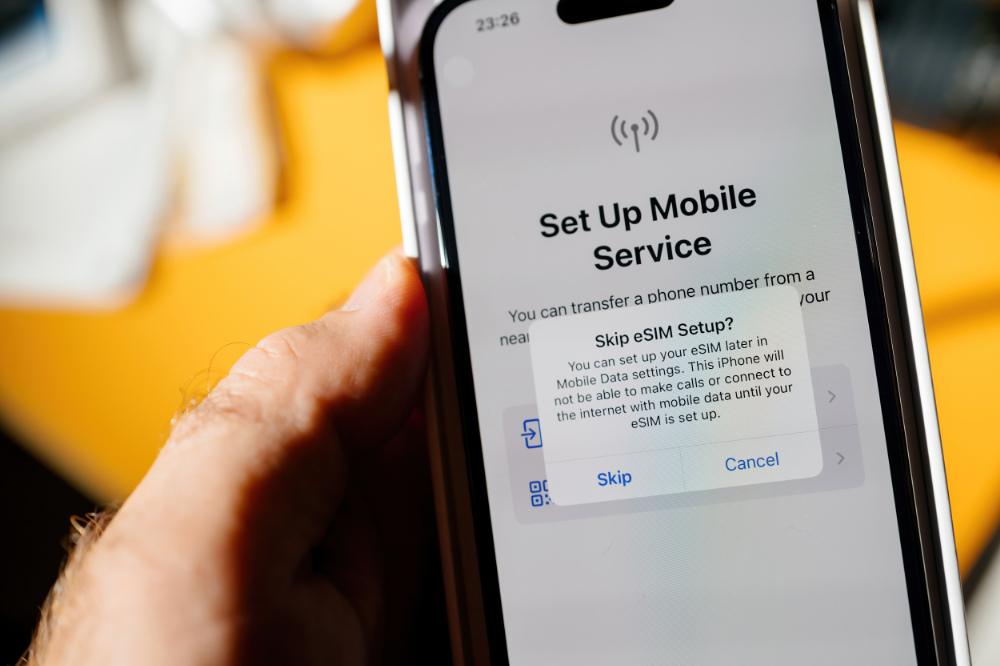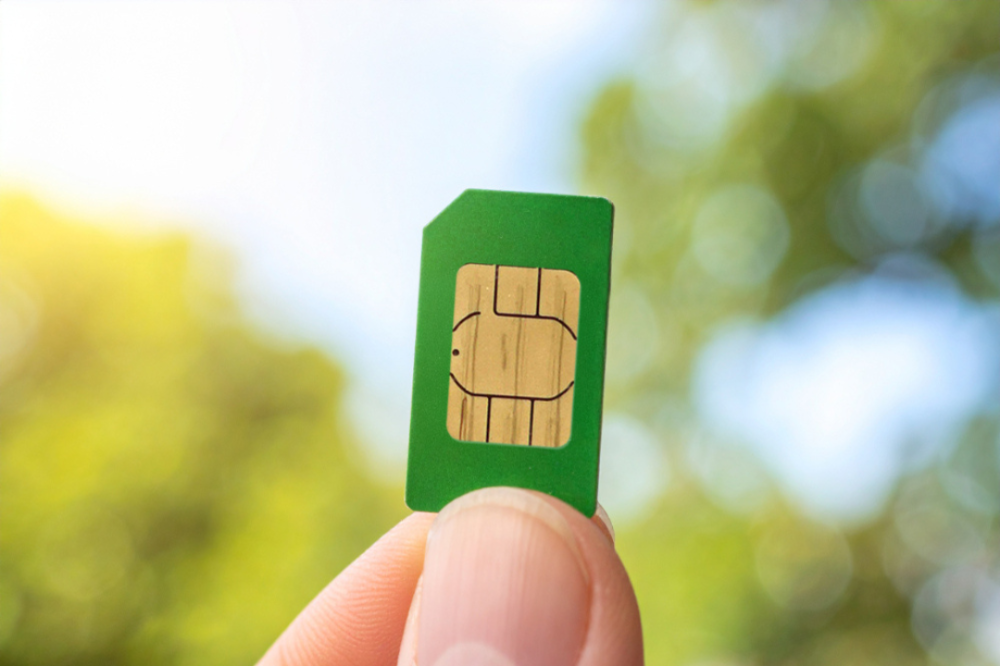Best SIM Card to Use in Japan: Complete Guide for Travelers

Travelers planning a trip to Japan often find that reliable mobile data is as essential as their passport. Whether the goal is to navigate efficiently, stay in touch with family and colleagues, or capture and share experiences in real time, a dependable SIM card can make a significant difference. With one, visitors can access map applications to avoid getting lost in Tokyo’s backstreets, translate menus in rural sushi shops, or confirm train schedules while on the go. Additionally, for some, the convenience of having a local phone number also implies being able to make reservations, contact accommodations, or receive important calls without incurring international roaming fees.
In this guide, you’ll find out which travelers benefit most from having a SIM card in Japan, what types and plans are available, and where to buy one. Plus, you’ll also learn why so many visitors choose NINJA WiFi as their go-to connection during their stay.
Who Should Get a SIM Card in Japan and Why it Matters

Staying connected in Japan can transform your trip, and knowing who benefits most from a SIM card helps you decide if it’s the right choice for you.
How Japan SIM Cards Work for Foreign Visitors
Foreign visitors can generally use a Japan SIM card if their smartphone is unlocked and supports the required network bands. Most modern devices from major brands, such as Apple, Samsung, and Google, meet these requirements. However, verifying compatibility before travel is the first step towards a smooth experience.
Japan offers travelers four main connectivity options: public WiFi, physical SIM cards, eSIMs, and pocket WiFi devices. Public WiFi is rarely recommended for a trip as it is unreliable and can be difficult to access. A physical SIM, on the other hand, replaces the one in your phone, giving you direct and private mobile network access. An eSIM functions similarly but is digitally installed, allowing for activation without handling a physical card—ideal for travelers who want to set up service before boarding their flight. Pocket WiFi, meanwhile, is a portable router that connects multiple devices simultaneously, making it suitable for families or groups, but less convenient for solo travelers who want to avoid carrying extra equipment.
In terms of performance, Japan’s networks offer high-speed 4G LTE and increasingly widespread 5G services in major cities, including Tokyo, Osaka, and Fukuoka. Rural coverage is generally strong, though certain mountainous or remote island areas may see slower speeds.
Benefits of Using a SIM Card for Japan Travel
Having a SIM card allows travelers to access navigation tools such as Maps instantly—essential for finding restaurants in maze-like streets or identifying the right exit in a sprawling Shinjuku Station. Translation apps become indispensable when deciphering train notices in kanji or ordering at a local izakaya without an English menu. Meanwhile, ride-hailing and transportation apps, such as GO or Jorudan, work more effectively with constant connectivity, preventing delays and missed transfers.
Unlike relying on hotel or café WiFi, a SIM card provides a secure and private connection, reducing the risk of data theft. It also offers better value than most international roaming plans, which can quickly exceed several thousand yen for minimal usage. Communication is also seamless—travelers can send high-resolution photos to friends or join video calls with family without difficulty.
Ideal Travelers for a Japan SIM Card
A Japan SIM card is particularly valuable for independent travelers who navigate without guided tours and want real-time information at every stage of their journey. Business travelers will also benefit from the ability to participate in video conferences or respond to urgent work emails without having to search for public WiFi. Lastly, long-term visitors—such as students, temporary residents, or extended-stay tourists—find that prepaid SIM plans with generous data allowances or voice capabilities offer more convenience than relying solely on their accommodation’s WiFi or having to carry a pocket WiFi at all times.
Types of Japan SIM Cards and Popular Plans

Travelers visiting Japan have several SIM card options, each suited to different communication needs and travel styles.
SIM Cards with Phone Numbers and SMS
For travelers who need to make or receive calls and send text messages, SIM cards with voice and SMS capabilities offer a practical solution. These are especially valuable for making restaurant reservations, contacting hotels directly, or receiving important calls from tour operators or business contacts.
However, Japan has legal requirements for voice-enabled SIMs. Most providers require additional identification, such as a passport and sometimes a local address, before activating voice services. For this reason, the process can take extra time compared to purchasing a data-only SIM, so travelers should plan ahead if they expect to rely on local calling.
Rental SIM Cards and eSIM Options
Rental SIM cards are designed for short-term visitors who want preloaded data without committing to a long contract. Often, they are available for pickup at airports or through delivery to hotels. The drawback is the need to return the SIM at the end of the rental period, which can be inconvenient if you are traveling between regions or departing from a different airport.
NINJA WiFi addresses the inconveniences by offering SIM cards that do not need to be returned—simply dispose of them after your trip. For travelers who prefer a completely digital solution, eSIMs provide even greater flexibility. NINJA WiFi’s eSIM plans range from 5 to 31 days and include options such as a 5-day 5GB plan for 3,102 yen, a 10-day 10GB plan for 4,851 yen, or a 21-day 50GB plan for 12,199 yen. eSIM plans eliminate the need for physical card pickup, making activation possible before arrival in Japan and allowing for immediate connectivity upon landing.
Prepaid Data-Only SIM Cards
Data-only SIM cards are the most popular choice for visitors who prioritize internet use over voice calls. They provide instant access to all necessary travel apps and offer sufficient communication options through the use of messaging apps as well. In addition, prepaid SIMs are available for both short trips and extended stays, making them suitable for both casual tourists and long-term visitors.
NINJA WiFi offers a variety of data-focused plans through Docomo (4G), such as 1GB per day for 7 days at 3,795 yen, 20GB for 30 days at 5,049 yen, and Infinite Unlimited Plans starting at 7,150 yen for 15 days. For travelers staying longer, SoftBank 5G options are also available for 60 days, including a 15GB plan at 3,740 yen and a 50GB plan at 7,205 yen. For travelers seeking a balance between cost and performance, NINJA WiFi’s plans offer strong coverage and reliable speeds across Japan, including less populated regions.
How and Where to Buy a SIM Card in Japan

If you’re now convinced that a SIM card might be just the right choice for your trip, you’re likely curious about purchasing options. We cover them in the section below, including advantages and drawbacks for each option.
Choosing the Best SIM Card for Your Trip
Selecting the right SIM card begins with evaluating three key factors: trip length, expected data usage, and device compatibility. Short-term visitors staying under two weeks might opt for a prepaid data SIM with a fixed allowance, such as 1GB per day or 10GB total, to ensure coverage without overspending. Travelers planning longer stays—such as a month or more—often find that unlimited or large-allowance plans provide better value.
Data-intensive users who stream videos, participate in video calls, or frequently edit and share high-resolution photos on social media will require more generous plans. In contrast, lighter users who primarily use maps and messaging apps can opt for smaller packages. Finally, confirming that your phone is unlocked and supports Japanese network frequencies is essential, as incompatible devices cannot connect even with a valid SIM card. To determine if your phone is unlocked, ask your carrier or try inserting a SIM card from another carrier into your phone and see if it functions properly.
Buying a SIM Card Before You Arrive
Whether it is for a SIM card, an eSIM, or even a pocket WiFi device, booking ahead of your trip will always offer more options and enhanced convenience. Many providers, including NINJA WiFi, allow online ordering with pickup at major Japanese airports such as Narita, Haneda, Kansai International, and Chubu Centrair. These airport counters are clearly signposted, and staff are available to assist with installation if necessary.
For travelers who prefer complete flexibility, NINJA WiFi also offers pickup at smaller airports, such as Kagoshima and Komatsu airports, as well as delivery to hotels and private residences, in addition to pickup in Tokyo locations.
Buying a SIM Card in Japan
SIM cards can also be purchased after arrival at airports, major electronics retailers such as Bic Camera and Yodobashi Camera, and even at some convenience stores like 7-Eleven. While buying in-country provides a certain flexibility, the range of plans available may be limited compared to online pre-orders, particularly for longer durations or specialized data packages. Purchasing ahead of time generally ensures better selection rather than settling for whatever is available at a crowded airport shop. In busy travel periods, advance purchase also reduces the risk of waiting in long lines or encountering sold-out options.
Conclusion
Reliable mobile internet has become an essential tool for travelers to Japan who wish to navigate the country’s efficient yet complex transportation systems smoothly, access translation tools, book last-minute tickets, and stay in touch with family or colleagues abroad. With consistent coverage across urban hubs and rural regions, competitive data allowances, and plans designed for trips of varying lengths, NINJA WiFi addresses the fundamental challenges visitors face on the ground. A combination of transparent pricing, straightforward activation, and options for both SIM and eSIM users ensures that you can start your journey connected and remain so until your return flight. Secure your SIM card or eSIM plan with NINJA WiFi before you travel, and enjoy a more connected experience in Japan.








